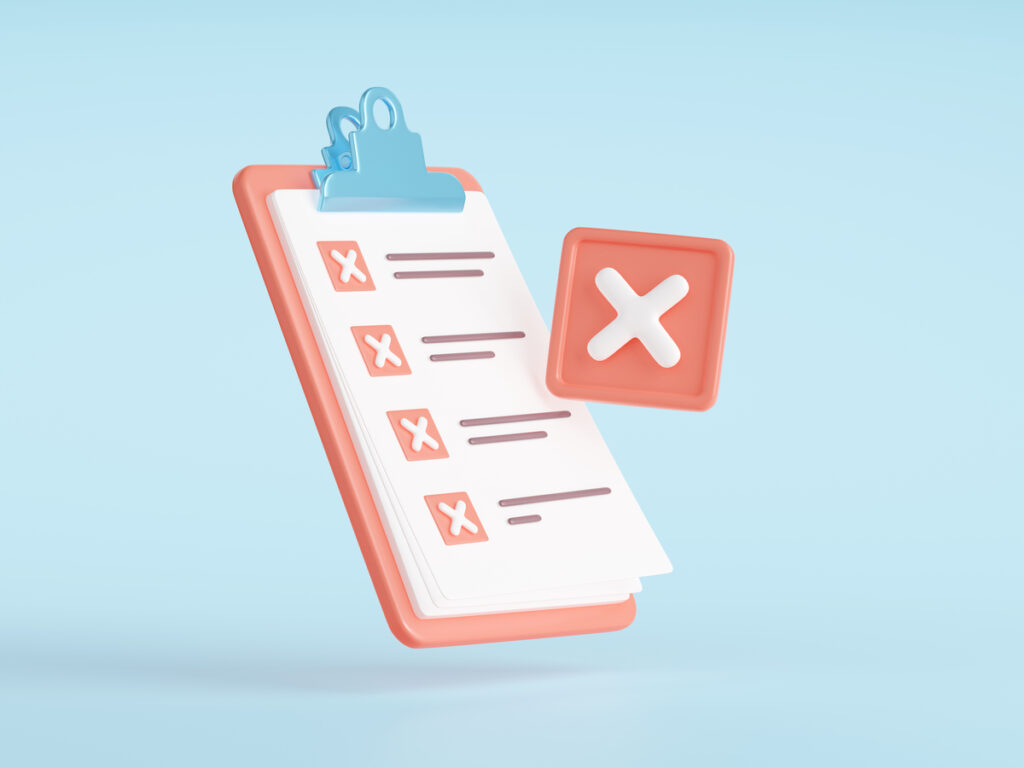How Can A Neuropsychological Evaluation Help With Anxiety?
Anxiety is more than just feeling nervous—it can have a profound impact on your mental processes, affecting memory, attention, problem-solving, and emotional regulation. Understanding these effects is essential for managing anxiety effectively, and that’s where a neuropsychological evaluation comes in.
By pinpointing how anxiety affects cognitive function and identifying specific triggers, these assessments offer a detailed roadmap for targeted interventions. Whether you’re struggling to focus, dealing with forgetfulness, or facing decision-making challenges, a neuropsychological evaluation provides actionable insights to help you regain control and improve your quality of life.
In this guide, we’ll explore how neuropsychological evaluations can uncover the hidden effects of anxiety, empower you with personalized strategies, and set you on a path toward emotional resilience and mental clarity.

The Impact of Anxiety on Cognitive Function, Memory, Attention, and Problem-Solving
How Anxiety Affects Cognitive Function
Anxiety affects not only emotions but also cognitive processes like memory, attention, and problem-solving. It clouds the mind, making it harder to concentrate, recall information, or think logically. This cognitive impairment creates a feedback loop, where struggling with tasks increases anxiety, further hindering performance.
A neuropsychological assessment can help identify the specific cognitive barriers caused by anxiety, enabling you to develop targeted strategies to regain mental clarity, improve focus, and break the anxiety cycle.
Identifying Anxiety Triggers
Understanding what sparks anxiety is the first step toward managing it. Neuropsychological assessments can uncover the specific situations, thoughts, or environments that trigger anxiety, empowering you to address them effectively.
By identifying your triggers, you can create personalized strategies to minimize anxiety flare-ups, putting you back in control of your emotional well-being.
How Anxiety Affects Memory
Anxiety disrupts memory by overwhelming the brain, making it harder to store, retrieve, and process information. This can lead to forgetfulness and difficulty with tasks requiring focus.
Through a neuropsychological evaluation, you can pinpoint how anxiety affects your memory and adopt strategies like mindfulness or cognitive-behavioral therapy (CBT) to improve recall, reduce forgetfulness, and alleviate stress caused by memory lapses.
Tailored Treatment Plans for Anxiety
Anxiety is unique to each person, so a one-size-fits-all approach doesn’t work. Neuropsychological evaluations provide insights into how anxiety affects your thoughts and behaviors, paving the way for a personalized treatment plan.
Whether through therapy, medication, or lifestyle changes, a tailored approach addresses the root causes of anxiety, increasing your chances of lasting relief and improving your quality of life.
The Impact of Attention on Anxiety
Anxiety often disrupts focus, making it difficult to stay on task or engage in conversations. This fragmentation of attention can lead to errors and increase stress, reinforcing the anxiety cycle.
A neuropsychological evaluation can pinpoint how anxiety affects your attention and provide actionable strategies, such as mindfulness or CBT, to enhance concentration and alleviate anxiety.
Problem-Solving Challenges and Anxiety
Anxiety can cloud judgment, making it harder to solve problems and leading to procrastination. Even simple decisions may feel overwhelming.
Neuropsychological assessments help you identify how anxiety interferes with problem-solving. With this insight, you can develop strategies to improve decision-making, reduce stress, and boost your confidence in handling challenges.

Uncovering Anxiety Patterns: A Guide to Managing Triggers
Anxiety often manifests in recurring thought patterns or emotional triggers that can go unnoticed. Identifying these patterns is crucial for effective management.
Neuropsychological evaluations can reveal these hidden dynamics, allowing you to work with a therapist to design targeted interventions. By addressing these patterns, you can reduce the frequency and intensity of anxiety episodes and regain control over your mental health.
Recognizing Recurring Patterns
Anxiety often emerges through repetitive thoughts and behaviors. Identifying these patterns is essential for breaking the anxiety cycle and improving long-term well-being.
Uncovering Hidden Triggers
Neuropsychological evaluations identify the subtle thoughts, behaviors, and emotional responses that fuel anxiety. By understanding these triggers, you can adopt a more targeted approach to managing anxiety.
Disrupting the Anxiety Cycle
Once anxiety patterns are identified, strategies can be implemented to challenge and reshape the thoughts and behaviors driving anxiety. These interventions can significantly reduce anxiety episodes and improve daily life.
Crafting Customized Strategies Through Collaboration
Using insights from neuropsychological evaluations, you can collaborate with mental health professionals to create a personalized management plan. This ensures the interventions are effective and tailored to your specific needs.
Empowering Control and Resilience
Understanding your anxiety patterns empowers you to actively manage your mental health. With targeted strategies and a proactive approach, you can build resilience and face future challenges with confidence.

The Role of Neuropsychological Evaluations in Anxiety Management
Managing anxiety is a multifaceted process, and neuropsychological evaluations play a pivotal role in providing a detailed understanding of an individual’s cognitive and emotional functioning. These evaluations go beyond the surface symptoms to uncover the underlying neurological and psychological factors contributing to anxiety disorders. By identifying specific patterns of thought, memory, attention, and emotional regulation, neuropsychological assessments offer a tailored roadmap for effective intervention.
The assessment process begins with a comprehensive interview and a review of the individual’s medical and psychological history. This helps to contextualize the presenting symptoms and guides the selection of appropriate evaluation tools. These tools often include standardized questionnaires, which measure the severity and impact of anxiety on daily life, and cognitive tests that assess areas like memory, problem-solving, and executive functioning. Additionally, projective tests or interviews may be used to delve deeper into emotional processing and coping strategies.
What sets neuropsychological evaluations apart from general therapy or counseling is their scientific precision. While therapy focuses on exploring emotions and developing coping mechanisms, neuropsychological assessments aim to objectively measure how anxiety affects brain function and behavior. This differentiation allows for the development of highly individualized treatment plans, such as recommending specific therapeutic approaches, behavioral interventions, or even adjustments in medication if necessary.
By combining clinical expertise with data-driven insights, neuropsychological evaluations empower individuals and their healthcare providers to take proactive, informed steps toward managing anxiety effectively.

The Importance of Early Intervention and Diagnosis
Early intervention and diagnosis play a pivotal role in addressing anxiety-related cognitive difficulties. Identifying these challenges at an early stage can significantly alter the trajectory of an individual’s mental health journey. Anxiety, when left unaddressed, can snowball into chronic stress, impacting both mental and physical well-being. Over time, untreated anxiety may lead to more severe conditions, including depression, social withdrawal, or even physical ailments such as hypertension or gastrointestinal issues.
By recognizing symptoms early, individuals and healthcare providers have the opportunity to implement timely and effective interventions. These interventions might include therapy, stress management techniques, or even lifestyle changes that can help mitigate the impact of anxiety on daily life. Early diagnosis not only prevents the worsening of mental health conditions but also empowers individuals to reclaim their well-being through targeted strategies. Moreover, early action can enhance the effectiveness of treatments, as interventions are often more successful when applied before patterns of chronic stress become deeply entrenched.
Early identification also reduces the stigma surrounding mental health by normalizing conversations about cognitive and emotional struggles. Educating individuals, families, and communities about the signs of anxiety-related issues fosters a supportive environment where seeking help becomes a proactive, positive choice rather than a last resort. Ultimately, early diagnosis and intervention save lives, improve quality of life, and lay the foundation for long-term resilience and mental well-being.

How Neuropsychological Evaluations Aid in Monitoring Treatment Progress
Neuropsychological evaluations are powerful tools for understanding and tracking the effectiveness of anxiety management treatments. These evaluations go beyond surface-level observations, offering a detailed view of how treatments influence brain function and cognitive abilities over time. By assessing changes in areas such as memory, attention, problem-solving, and emotional regulation, clinicians gain critical insights into whether a treatment is genuinely improving a patient’s condition.
Measuring Changes in Cognitive Function Over Time
One of the core benefits of neuropsychological evaluations is their ability to measure subtle cognitive changes that might not be immediately visible through standard clinical observation. For individuals undergoing anxiety treatment, evaluations can reveal improvements in areas such as:
- Attention and Focus: Anxiety often disrupts a person’s ability to concentrate. Tracking improvements in attention can indicate reduced anxiety symptoms.
- Memory Recall: Chronic anxiety can impair memory. Enhanced recall during evaluations may signal a positive response to treatment.
- Emotional Regulation: Tools within the evaluation can assess changes in how individuals manage stress, frustration, or fear.
These measurable shifts provide tangible evidence of progress, helping both clinicians and patients stay motivated and confident in the treatment plan.
Guiding and Refining Treatment Plans
As neuropsychological evaluations provide a snapshot of a patient’s cognitive and emotional health at different points in time, they allow for data-driven adjustments to treatment strategies. If evaluations indicate limited improvement in certain areas, clinicians can explore alternative therapeutic approaches, such as modifying medication, incorporating cognitive-behavioral techniques, or introducing mindfulness practices. Conversely, if evaluations show significant progress, it may suggest that the current treatment is effective, allowing the focus to shift to maintaining or enhancing these gains.
By integrating neuropsychological evaluations into the treatment process, clinicians not only gain a deeper understanding of a patient’s journey but also empower patients with clear evidence of their progress. This collaborative approach fosters a sense of agency, helping patients remain engaged and optimistic about their recovery.

Common Myths About Neuropsychological Evaluations for Anxiety
Neuropsychological evaluations can be an essential tool in understanding anxiety and its impact on an individual’s daily life. Unfortunately, several myths and misconceptions surrounding these evaluations prevent people from seeking this valuable resource. Let’s address some of the most common myths to help you better understand the role these evaluations play in managing anxiety.
Myth 1: Neuropsychological Evaluations Are Only for Severe Cases
One widespread misconception is that neuropsychological evaluations are only necessary for individuals with severe or debilitating anxiety. While these evaluations can be crucial for those with severe conditions, they are equally beneficial for individuals experiencing mild to moderate symptoms. Anxiety manifests differently in everyone, and these evaluations provide insights into how your specific cognitive, emotional, and behavioral patterns are being affected.
By assessing factors like attention, memory, and problem-solving skills, neuropsychological evaluations help identify subtle ways anxiety might be influencing your life—offering targeted recommendations that can make a real difference, regardless of the severity of your symptoms.
Myth 2: Neuropsychological Evaluations Replace Therapy or Medication
Another common myth is that neuropsychological evaluations serve as a substitute for therapy or medication. This is far from the truth. Instead, these evaluations complement other treatment modalities by offering a comprehensive understanding of how anxiety impacts your brain and behavior.
The results from these evaluations are often used to tailor therapy approaches, inform medication decisions, and develop personalized coping strategies. Rather than replacing traditional treatments, neuropsychological evaluations enhance their effectiveness by providing a roadmap for more targeted and efficient interventions.
The Value of Accurate Understanding
Dispelling these myths is essential for encouraging individuals to take advantage of neuropsychological evaluations. They are not reserved for extreme cases, nor are they a standalone solution. Instead, they are a powerful tool for gaining clarity about how anxiety interacts with your unique mental processes—empowering you to make informed decisions about your mental health journey.
Understanding the purpose and benefits of neuropsychological evaluations can pave the way for better outcomes, helping you live a more balanced and fulfilling life.
Conclusion
Neuropsychological evaluations provide a comprehensive and personalized approach to understanding and managing anxiety, empowering individuals to overcome cognitive challenges and emotional struggles. By identifying specific patterns and triggers, these assessments enable the creation of targeted treatment plans, fostering mental clarity, resilience, and long-term well-being. Whether through therapy, mindfulness, or tailored interventions, neuropsychological evaluations act as a cornerstone in addressing the multifaceted impacts of anxiety.
At Forensic and Clinical PsycExperts, our team is dedicated to delivering in-depth assessments and actionable insights to help you regain control and thrive. Take the first step toward a healthier, more balanced life today by exploring our expert services.
FAQs
What is a neuropsychological evaluation, and how does it differ from standard therapy?
A neuropsychological evaluation focuses on objectively measuring how anxiety impacts cognitive functions like memory, attention, and problem-solving. Unlike therapy, which explores emotions and coping mechanisms, these evaluations offer data-driven insights to guide tailored treatment plans.
Can a neuropsychological evaluation identify my anxiety triggers?
Yes, these evaluations can help pinpoint specific thoughts, environments, or situations that trigger your anxiety, enabling the development of personalized strategies to manage and avoid these stressors.
How can a neuropsychological evaluation improve my focus and memory?
By assessing how anxiety disrupts cognitive processes, evaluations identify specific areas of difficulty, such as attention lapses or forgetfulness. Recommendations may include cognitive-behavioral therapy, mindfulness techniques, or lifestyle adjustments to improve focus and memory.
Is a neuropsychological evaluation useful for mild anxiety?
Absolutely. Neuropsychological evaluations are beneficial for individuals with mild to severe anxiety, as they uncover subtle ways anxiety impacts daily life and offer strategies to improve mental clarity and emotional regulation.
How do I know if a neuropsychological evaluation is right for me?
If you’re experiencing difficulties with focus, memory, decision-making, or managing anxiety, a neuropsychological evaluation can provide valuable insights and actionable solutions. Contact Forensic and Clinical PsycExperts to learn more about how we can help.

